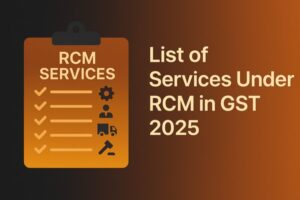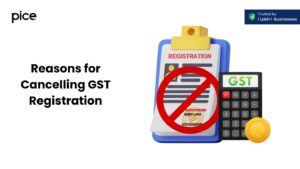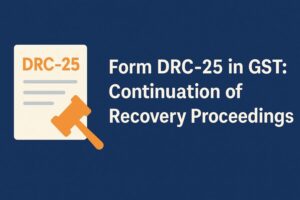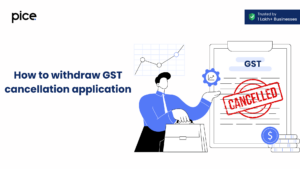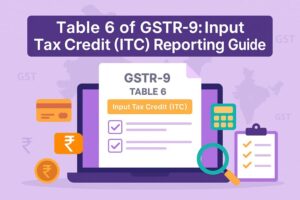A Guide on Form GST REG 07
- 23 Apr 25
- 7 mins

A Guide on Form GST REG 07
- Meaning of Tax Deducted at Source (TDS) under GST
- Who is Liable to Collect TDS Under GST?
- Meaning of Tax Collected at Source (TCS) under GST
- Who is Liable to Collect TCS Under GST?
- Pre-Requisites to Apply for GST Registration
- Reason When GST Registration Can be Cancelled
- Recent Amendments in TCS Registration
- Conclusion
Key Takeaways
- Form GST REG-07 is essential for government entities and e-commerce operators required to deduct (TDS) or collect tax (TCS) under GST.
- TDS under GST involves government agencies deducting tax payments at the source to prevent revenue leakage.
- E-commerce platforms collecting payments from customers must register for TCS compliance via GST REG-07.
- Recent amendments include an increase in the TCS threshold for foreign remittances/travel, removal of TCS on the sale of goods, and reduced TCS rates on certain forest produce.
- Timely registration through GST REG-07 helps entities maintain compliance, avoid penalties, and ensure smooth business operations.
Form GST REG-07 is a crucial document for businesses and entities required to comply with GST provisions relating to Tax Deducted at Source (TDS) and Tax Collected at Source (TCS). It forms an integral part of the GST registration process, especially for government bodies, public sector undertakings, and e-commerce operators liable under Sections 51 and 52 of the CGST Act.
By filing an application for registration through this form, eligible entities can meet their registration compliance requirements efficiently via the Common portal. Understanding its purpose and eligibility criteria helps ensure that every person responsible for collecting or deducting tax under GST adheres to statutory obligations smoothly.
Meaning of Tax Deducted at Source (TDS) under GST
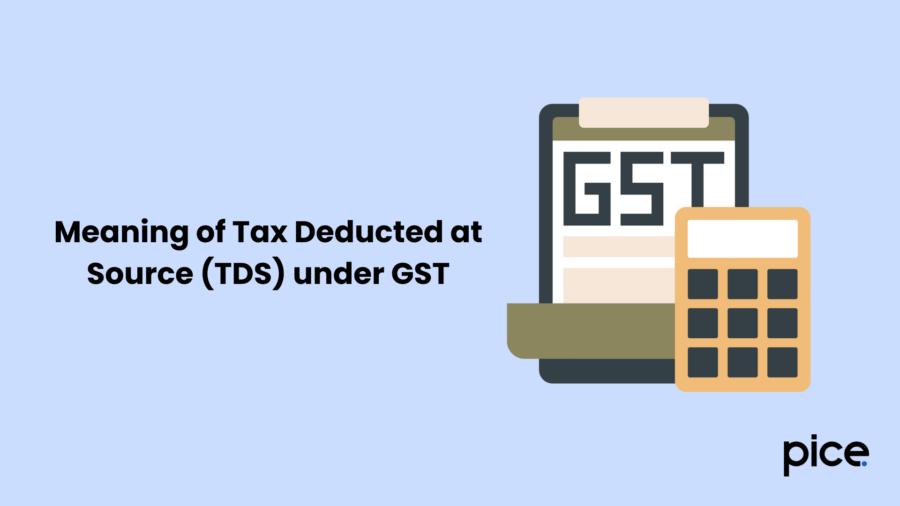
TDS under GST refers to the mechanism where a specified percentage is deducted by the payer when making payments for taxable goods or services. This deducted amount is then remitted to the government. The provisions for TDS are outlined under Section 51 of the CGST Act, read with Rule 66 of the CGST Rules. The main objective is to ensure seamless tax collection and avoid revenue leakage.
Who is Liable to Collect TDS Under GST?
Entities that fall under the definition of a person liable to deduct TDS under GST include:
- Departments or establishments of the Central or State Government
- Governmental agencies
- Local authorities
- Authorities or boards with more than 51% government ownership
- Societies registered under the Societies Registration Act, 1860
- Public sector undertakings (PSUs)
- Other entities as notified by the government
These organisations are required to apply for GST registration using Form GST REG-07 to ensure compliance before they begin deducting TDS.
Meaning of Tax Collected at Source (TCS) under GST
TCS under GST is applicable to e-commerce operators who collect payment from customers on behalf of vendors selling through their platforms. The tax is calculated as a percentage of the net taxable supplies. Section 52 of the CGST Act governs TCS provisions, and such operators are mandated to register using Form GST REG-07 on the GST portal before collecting TCS.
Who is Liable to Collect TCS Under GST?
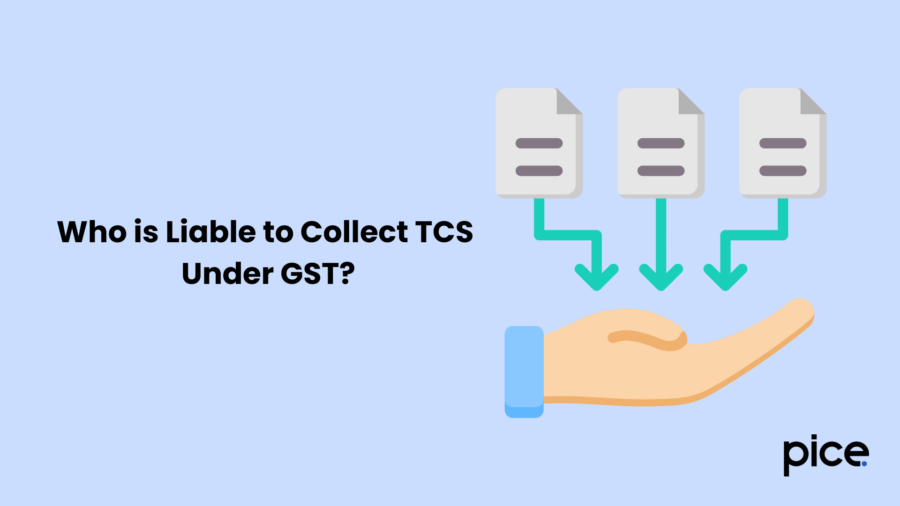
TCS applies to e-commerce operators who:
- Own or operate digital platforms facilitating the supply of goods or services
- Collect consideration on behalf of suppliers
- Are registered under GST and fulfil TCS obligations
However, TCS is not applicable to services provided through the platform by:
- Unregistered clubs or hotels
- Housekeeping services like carpentry or plumbing by unregistered individuals
- Passenger transport services via motorbike, taxi, or similar means
These exemptions are important for defining person responsible for TCS compliance.
Pre-Requisites to Apply for GST Registration
The following are the primary documents needed for GST registration application:
- PAN card
- Aadhaar card
- Business registration proof
- Identity verification
- Photographic evidence
- Address evidence of personnel in charge
- Business address proof (head office address)
- Bank account statement or cancelled cheque
- Utility bill, rental agreement, or ownership documentation
Reason When GST Registration Can be Cancelled
A taxpayer will no longer remain a GST registered individual if their registration is cancelled. He will not be required to file GST returns since he will not be required to pay, collect, or claim an input tax credit.
Here are the consequences of GST registration cancellation:
- Taxpayers will no longer be required to pay GST.
- If a GST registration has been cancelled but the business continues, it will be considered an offence under the GST and there will be severe penalties.
Recent Amendments in TCS Registration
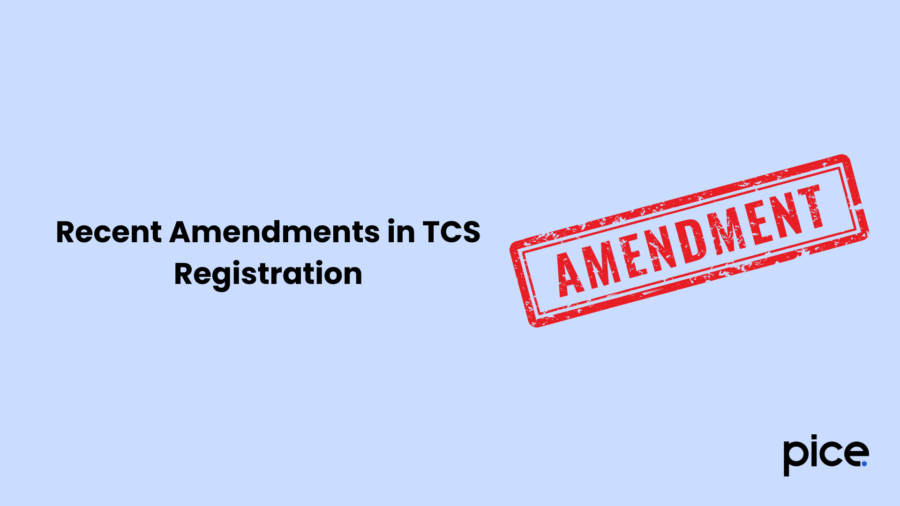
Here are the recent significant amendments made to TCS registration:
1. Enhanced Threshold Limit for TCS
TCS has raised the threshold limit for remittances under the Liberalised Remittance Scheme (LRS) and international travel packages from Rs. 7 Lakhs to Rs. 10 Lakhs. Furthermore, if an education loan funds the education, TCS won't be chargeable on LRS. Since April 1, 2025, TCS on student loans is no longer covered under Section 206C(1G).
2. Removal of TCS on Sale of Goods
Previously, if the total value of the products sold was above Rs. 50 lakhs with additional criteria, the seller was required to pay a TCS as per section 206C(1H). This led to problems with section 194Q, which required the buyer to deduct TDS when purchasing identical goods. The seller will no longer be required to collect TCS on products supplied as a result of the repeal of Section 206C(1H) on April 1, 2025.
3. Reduced TCS Rates for Forest Produces
Section 206C(1) has lowered the TCS rate for wood and other forest products, excluding tendu leaves, from the prior cap of 2.5% to 2%. Furthermore, the definition of "forest produce" will be identical to that found in any State Act or the Indian Forest Act of 1927.
Conclusion
Overall, Form GST REG-07 is vital for any person responsible for TDS or TCS compliance under GST. It streamlines the GST registration process for public sector entities, government bodies, and e-commerce platforms.
Timely filing of this form on the common portal not only ensures registration compliance but also helps maintain business continuity and avoid penalties. Understanding recent regulatory changes and meeting all registration requirements is crucial for ensuring smooth and lawful operations under GST.
💡If you want to streamline your payment and make GST payments via credit or debit card or UPI, consider using the PICE App. Explore the PICE App today and take your business to new heights.
 By
By 






